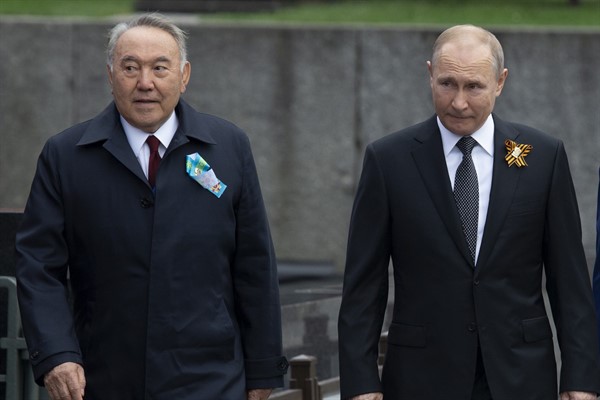More even than most crises, the events unfolding in Kazakhstan in recent days can be read in myriad ways. On one level, it clearly appears to have resulted in yet another opportunity for Russian President Vladimir Putin to claw back control over domains lost by the Kremlin following the demise of the Soviet Union.
Moscow has been able to accomplish this by falsely pretending the unrest that it helped put down in its Central Asian neighbor was yet another example of what it calls a “color revolution,” meaning an insidious destabilization plot supported by the West.
On another level, the crisis reveals China’s surprising geostrategic weakness in Central Asia. Even after decades of world-beating economic growth and the construction of a new transcontinental railway across Kazakhstan linking China to Europe, Beijing appears to have little meaningful political influence in that country. In the past week, it has been rendered a mere bystander as Moscow sent in troops under the cover of the Collective Security Treaty Organization, or CSTO, a regional organization that it leads, to support President Kassym-Jomart Tokayev.

